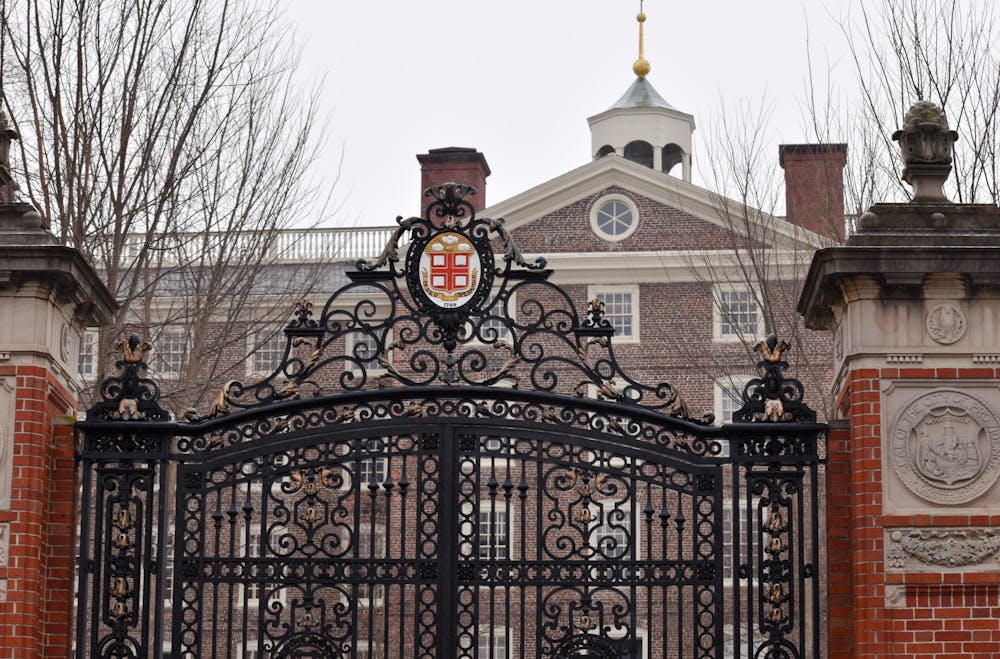The Undergraduate Teaching and Research Awards transitioned to a progressive funding model in an effort to provide more equitable opportunities for faculty-guided undergraduate research, according to Oludurotimi Adetunji, associate dean of the College for undergraduate research and inclusive science.
Beginning this summer, undergraduates who receive an UTRA to conduct domestic research will receive a base stipend of $2,500, and those engaging in projects overseas will receive a base stipend of $3,000. Depending on a student’s demonstrated financial need, they may be eligible to earn a Gap Award, which will provide them with additional funding ranging from $2,000 to $3,000.
Adetunji said that this change was an attempt to “address concerns that students raised, many of which were around equity and access.”
Students who previously participated in UTRA projects noted that while the stipend was helpful, it was not enough to live on. Nicole Burns ’23 said that her $2,000 flat stipend last summer meant that she was earning $5 an hour for her seven- to eight-hour workdays in the Plavicki Lab studying zebrafish.
Mei Li Costa ’22 spent last summer helping to develop a reimagined literature curriculum for secondary schools, but said that she “had another job at the same time” and that the stipend she received was “not enough to live off of in the summer” living in Providence.
In the past, some students raised concerns that the flat stipend made UTRA less accessible to students receiving financial aid, according to Adetunji.
Adetunji hopes the new funding model will reduce some of those concerns by “providing financial support for students who may not be able to engage in research without funding” by targeting “increased resources to students with high or highest demonstrated financial need and also who historically were less likely to apply to UTRA.”
The UTRA program was previously restructured to fit into the “umbrella application for college-funded opportunities” titled Summer Projects for Research, Internships and Teaching. Having a centralized database of summer offerings makes the application process clearer, according to Adetunji.
SPRINT “creates visible opportunities for students … to engage in high-impact learning opportunities and to address deep inequalities in our programs,” Adetunji said.
Currently, students are selected for UTRA programs by a review committee. In years prior, students needed to have an existing partnership with a professor to apply for and engage in an UTRA project.
Through the current structure, professors are encouraged to openly post their research opportunities so that any student can browse position offerings, find an opportunity that fits their interests and apply.
Data from the spring UTRA cycle shows that these changes have encouraged more students to apply for faculty-guided research. Adetunji said that previously the review committee received an average of 45 to 50 applications each spring, but now that more professors post their offerings through SPRINT, they received nearly 200 applications.
The transparency of UTRA project postings has made it easier for some underclassmen to access research opportunities. Pranav Mahableshwarkar ’25 applied to work in a lab over the summer through UTRA, viewing it as a great way to get initial research experience.
“I was especially excited as I would have the opportunity to fully focus on the research as there are no classes or other commitments” during the summer, Mahableshwarkar said. “The opportunity to do that as a first-year is just really exciting.”
By making the application process open to all undergraduates, professors noted that their applicant pools showcase a variety of interests. For example, Kyle Martin, assistant professor of emergency medicine, is looking for an undergraduate research assistant to help facilitate sessions to train medical professionals in Rwanda how to respond to physical trauma.
“I assumed that everyone who would be interested would be from a pre-med background, but that hasn’t really been the case,” Martin said. “There have been people from all sorts of different backgrounds who are just interested in learning more about how to do international research and how to create relationships with organizations in another country.”
Martin was grateful for the extra funding that is now being awarded to undergraduates participating in projects abroad.
“I appreciate that the stipend is larger for students that participate in international projects because that can support some of the student’s ability to travel,” Martin said. “Having the opportunity to have a research project that takes place internationally is something that is so unique.”
Tyler Kartzinel, professor of environmental studies and ecology, evolution and organismal biology, is spending the upcoming summer in Yellowstone National Park researching the dietary habits of migratory animals like bison. As a self-described “staunch advocate for student researchers,” he is excited to welcome two undergraduate students to his team.
“UTRA represents an important source of support that can help students pursue research opportunities they might not otherwise have an opportunity to try, especially early in their college education,” Kartzinel said.
Summer UTRA applications are available on the Brown UFunds portal and close Feb. 9 at noon.
Dana Richie is a senior staff writer for Arts and Culture and the photo chief. She enjoys using multiple forms of media to capture peoples’ stories and quirks. In her free time, she loves knitting, learning about local history and playing ultimate frisbee.





